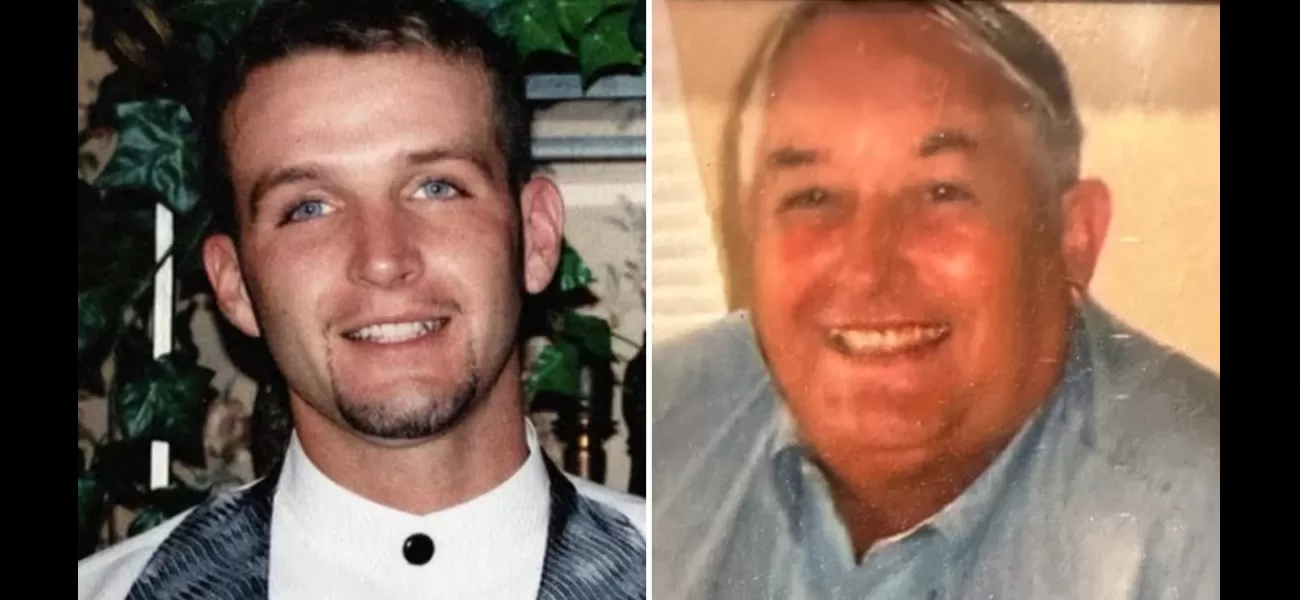Two prisoners discovered with internal organs missing upon their deaths within the prison walls.
Two prisoners died in Alabama with missing organs, returned to their families.
January 13th 2024.

It was a tragic and heartbreaking discovery for the families of Brandon Dotson and Charles Edward Singleton when their loved ones' bodies were returned to them without certain organs. The two inmates had passed away while in the custody of Alabama state prisons, and upon their return to their families, it was discovered that they were missing vital body parts.
According to court documents obtained by ABC 33/40 News, Charles Edward Singleton, 74, was found to be missing his brain when his body was returned to his family. He had died while under the care of the state Department of Corrections in November 2021, and his autopsy was conducted by the University of Alabama at Birmingham's Department of Pathology. It was later revealed that Mr. Singleton had been imprisoned in Alabama's Hamilton Aged and Infirmed facility.
His family had requested that his body be sent to a funeral home in Pell City, but upon arrival, the funeral director informed them that it would be difficult to prepare his body for viewing due to its noticeable state of decomposition. The documents stated that his body had already started to show signs of advanced skin slippage. To their shock, the family was then informed that Mr. Singleton's organs were missing, which is not a common occurrence as they are usually placed back into the body after being removed.
The family contacted the university to inquire about the missing organs, but they were told that they had never received them. This was the second instance of missing organs from the Alabama prison system, with the first being the case of Brandon Dotson, 43, whose heart was found to be missing upon a second autopsy.
The Dotson family has since filed a federal lawsuit demanding the return of his heart and other remains. Their lawyer, Lauren Faraino, expressed her shock and disgust at the situation, stating that it was unacceptable and disrespectful to take organs from a person without their family's knowledge.
The family's lawsuit claims that the only way a person's heart could go missing is through deliberate illegal activity or gross negligence from the entity responsible for the body. They are not the only ones with doubts about the Department of Corrections' claims of overdoses, as other families have also questioned the circumstances surrounding their loved ones' deaths.
The department declined to comment on the pending litigation, but this is not the first instance of disturbing behavior involving human remains. In Arizona, a hospital security guard was caught having sex with an elderly woman's corpse in a morgue freezer, while a Harvard Medical School morgue manager was charged with stealing and selling human remains for profit. These incidents only add to the families' grief and raise questions about the care and treatment of their loved ones' bodies.
According to court documents obtained by ABC 33/40 News, Charles Edward Singleton, 74, was found to be missing his brain when his body was returned to his family. He had died while under the care of the state Department of Corrections in November 2021, and his autopsy was conducted by the University of Alabama at Birmingham's Department of Pathology. It was later revealed that Mr. Singleton had been imprisoned in Alabama's Hamilton Aged and Infirmed facility.
His family had requested that his body be sent to a funeral home in Pell City, but upon arrival, the funeral director informed them that it would be difficult to prepare his body for viewing due to its noticeable state of decomposition. The documents stated that his body had already started to show signs of advanced skin slippage. To their shock, the family was then informed that Mr. Singleton's organs were missing, which is not a common occurrence as they are usually placed back into the body after being removed.
The family contacted the university to inquire about the missing organs, but they were told that they had never received them. This was the second instance of missing organs from the Alabama prison system, with the first being the case of Brandon Dotson, 43, whose heart was found to be missing upon a second autopsy.
The Dotson family has since filed a federal lawsuit demanding the return of his heart and other remains. Their lawyer, Lauren Faraino, expressed her shock and disgust at the situation, stating that it was unacceptable and disrespectful to take organs from a person without their family's knowledge.
The family's lawsuit claims that the only way a person's heart could go missing is through deliberate illegal activity or gross negligence from the entity responsible for the body. They are not the only ones with doubts about the Department of Corrections' claims of overdoses, as other families have also questioned the circumstances surrounding their loved ones' deaths.
The department declined to comment on the pending litigation, but this is not the first instance of disturbing behavior involving human remains. In Arizona, a hospital security guard was caught having sex with an elderly woman's corpse in a morgue freezer, while a Harvard Medical School morgue manager was charged with stealing and selling human remains for profit. These incidents only add to the families' grief and raise questions about the care and treatment of their loved ones' bodies.
[This article has been trending online recently and has been generated with AI. Your feed is customized.]
[Generative AI is experimental.]
0
0
Submit Comment





